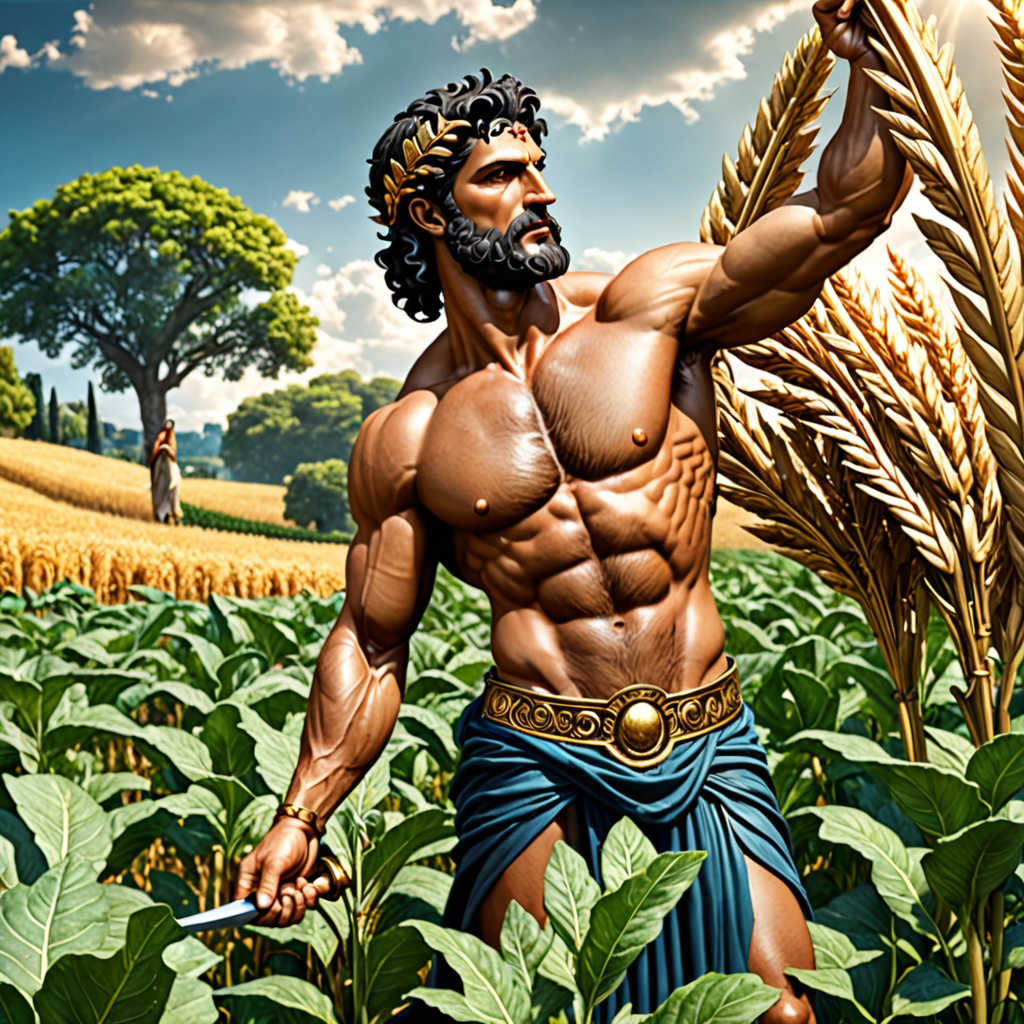Roman Mythology: Gods of Nature and Agriculture
Who Were the Roman Gods of Nature and Agriculture?
In Roman mythology, several deities were associated with nature and agriculture. One prominent figure was Ceres, the goddess of agriculture, fertility, and the harvest. She was highly revered by the Romans, who believed that she provided them with bountiful crops. Another significant deity was Silvanus, the god of forests, fields, and countryside. His role involved protecting the natural world and promoting fertility in the land.
How Did Romans Honor These Gods?
Romans honored the gods of nature and agriculture through various rituals and festivals. One such celebration was the Cerealia, dedicated to Ceres, where offerings of grains, milk, and honey were made to ensure good harvests. Additionally, they held ceremonies in honor of Silvanus to ask for his blessings on their fields and livestock. Trees were often planted in recognition of Silvanus, symbolizing growth and abundance in nature.
What Role Did These Gods Play in Roman Society?
The gods of nature and agriculture played a vital role in Roman society as they were believed to influence the success of crops, livestock, and overall prosperity. Farmers and agricultural workers would often offer prayers and sacrifices to Ceres and Silvanus to ensure fertile fields and favorable weather conditions. These deities provided a sense of security and hope, instilling faith in the natural cycles of life and growth.
Legacy of the Roman Nature and Agriculture Gods
The reverence for Ceres and Silvanus extended beyond ancient Rome and influenced various aspects of Roman culture. The symbols and imagery associated with these gods persisted in art, literature, and agricultural practices. Even today, elements of Roman mythology surrounding nature and agriculture continue to inspire and resonate with individuals who appreciate the significance of the natural world.
FAQs About Roman Mythology: Gods of Nature and Agriculture
Who were the main gods associated with nature and agriculture in Roman mythology?
In Roman mythology, the main gods related to nature and agriculture were Ceres, the goddess of agriculture, grain crops, fertility, and motherly relationships; Faunus, the god of the forest, fields, and agriculture; Flora, the goddess of flowers, vegetation, and fertility; and Saturn, the god of agriculture, wealth, and time.
What role did these gods play in ancient Roman society?
These gods were crucial in ancient Roman society as they were believed to protect and bless the fields, ensure bountiful harvests, and promote fertility. Farmers and agricultural communities often worshipped these deities to seek their favor for good crops and overall prosperity.
How were these gods honored and celebrated in Roman rituals?
The gods of nature and agriculture were honored through various rituals and festivals. Offerings of grains, fruits, and flowers were presented to them in temples and during agricultural ceremonies. Festivals like the Cerealia and Floralia were dedicated to Ceres and Flora, involving feasting, games, and floral decorations.
Did these gods have any counterparts in Greek mythology?
Yes, many of the Roman gods associated with nature and agriculture had counterparts in Greek mythology. For example, Ceres is equivalent



